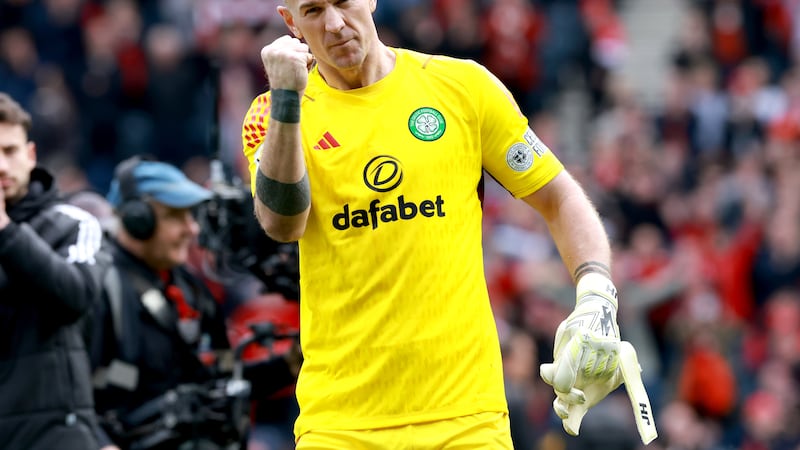After a weekend of club finals and play-offs for both relegation and promotion it would be easy to talk about a lot of topics – teamwork, never giving up, discipline – but the thing that has stood out for me with still playing club football in November is commitment.
Commitment is scarier for some people than Hallowe'en is for my toddler (and that's saying something) but to be able to achieve any goals or targets the very first thing anyone needs is commitment.
We need to be willing and able to sacrifice whatever it takes to commit to reaching a target.
It doesn't matter what the target is, it simply will not be achieved without commitment.
It could be losing weight, it could be gaining weight, lifting a heavier weight in the gym, making the starting squad on a team, shaving a second off a run time – the target is irrelevant unless you have a plan to get there and stick to it.
For some players their collective training with the county team would have started last December, then they went straight from county to club and are still training and playing now, 11 months later.
That is an incredible commitment to the game.
I have no doubt along the way there will definitely have been evenings where the thought of packing the training bag and heading for the pitch would have been absolutely the last thing they wanted to do that day, but they were committed to the team (and themselves) and showed up.
There will have been sacrifices along the way – parties missed, weddings unattended, holidays not taken, family events, relationships, the list is endless.
It would be very easy to throw in the towel at any stage and just say 'No, not this time, this isn't for me, I'm out'. But what does that achieve? What example does that set for a younger team-mate, or a child looking up, or a rival competitor? Why set the target in the first place?
There is no opportunity to experience the good days, the winning, the achievements, finally smashing a target that could have been set over a year ago without making some sacrifices along the way and wholly committing to the goal.
On the tough days we have to remember how good it feels when it works out, how it is worth saying no now for the bigger picture. I can't imagine anyone ever having won something or achieved a goal, felt that elation and pride and then thought that the commitment wasn't worth it.
My daughter is five and has already experienced having to make choices because of her commitments within the last week. Her last Irish Dancing class before her first big competition clashed with her first school disco.
It may seem trivial to some (and harsh to others) but teaching her at that young age that she has to make choices in order to honour her commitments is an important life lesson in my eyes. (She got to attend half of both, I'm not completely cruel, don't worry).
She learned though that if she is to take any of her (many) activities seriously there will be times she will have to miss out on other things.
When I can see her, at such a young age, being able to understand this, it makes me frustrated that grown adults have the mentality of just quitting when it gets hard, or letting themselves get frustrated to the point of giving up completely.
If you have a bad gym session or miss everything you aim at in training, it is frustrating, you question what you are doing and why you are doing it, but being able to put it down to a bad day and moving on to try again the next day or the next week is a life skill that really can't be taught.
We set our own targets and it should only ever be a battle with ourselves to achieve them.
As with everything in life, there is a fine line, however, and commitment can very easily become obsession.
That's where the art of goal and target setting becomes very important. Is the target reasonable and achievable in the timeframe you have set?
There is no point in a 5k runner deciding to run a marathon in a specific time within a few weeks just because they can run. It is a completely different type of training. Could they run it? Yes, absolutely. In a quick time without injury? Unlikely.
Of course there will always be one or two targets that we will set, thinking they will never happen, dreams or wishes rather than targets, but if we are committed enough we can get closer and closer to them each time.
It is important to have these
dreams and ideas but becoming fixated on them or obsessing over them is not healthy and it won't make them any easier to achieve – in fact it could cause injury,
fall-outs, negativity, and it's not worth it.
We must know the difference between realistic and achievable targets and be wholly committed to reaching those whilst still knowing that the 'pipe dream' is in the background and we are getting closer by meeting all the other commitments on the list first. Nothing is impossible, the word itself says 'I'm Possible'.








